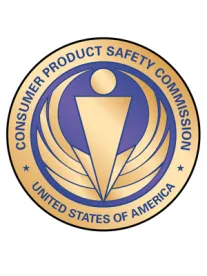The CPSC most commonly works with manufacturers, sellers, or those in the distribution chain to prompt them to issue warnings or recall notices to consumers. Recently, however, the CPSC has taken the far more unusual step of independently issuing its own warnings to consumers about dangerous products in three circumstances involving treadmills, youth ATVs, and bed rails.
In March, Peloton announced a six-year-old child had died in connection with one of treadmills, which prompted a CPSC investigation. Several weeks ago, the CPSC issued a warning to consumers to stop using Peloton treadmills after learning of 39 incidents where small children or pets were sucked under the treadmills. The CPSC urged consumers to stop using the treadmills if they have small children or pets. Peloton refused to recall the treadmills, criticized the CPSC’s “unilateral press release” as “inaccurate and misleading,” and declared that the treadmills were safe to use in homes as long as safety instructions and warnings were followed.
Last week, Peloton reversed its position and announced two voluntary recalls for the treadmills after more than 30 additional incidents were reported. Peloton’s CEO issued a statement explaining that “I want to be clear, Peloton made a mistake in our initial response to the [CPSC’s] request that we recall the Tread+. We should have engaged more productively with them from the outset. For that, I apologize.” CPSC Acting Chairman Robert Adler also issued a statement about Peloton’s reversal, referencing weeks of intense negotiations before the parties reached an agreement. Peloton eventually agreed to immediately stop selling and distributing the treadmills and to refund the full purchase price to consumers who want to return them. Adler also took this opportunity to criticize the consumer product safety laws governing the agency’s warnings to consumers:
The road to a recall is never smooth, to use a running metaphor. But CPSC faces a nearly insurmountable hurdle each and every time the agency wants to warn the public about a hazardous product. Under the gag order of Section 6(b) of our statute, the agency must negotiate with companies—often for weeks—before issuing any kind of safety warning. No other federal health and safety agency faces this restriction, and it is plain to see how bad it is for consumers that we are so limited in how we can protect them.
The CPSC’s recent warnings did not stop with treadmills. The CPSC warned consumers to stop using Maxtrade Coolster youth all-terrain vehicles (or ATVs) because the products do not meet the CPSC’s mandatory safety standards. Specifically, the ATVs exceed mandatory maximum speed limits for youth ATVs, posing a risk of a high-speed crash that could lead to serious injury or death. Maxtrade halted sales of the youth ATVs immediately upon receiving the CPSC’s notice.
The agency also issued a warning to consumers about portable bed rails manufactured by Bed Handles, Inc., which is no longer in business. An individual may become trapped between the bed rails or the rails and mattress, leading to asphyxia. In 2014 and 2015, the CPSC announced a recall of a previous version of the bed rails for a similar entrapment hazard.
Total Recalls: 24
Hazards: Fire/Burn/Shock (8); Violation of Federal Standard (6); Choke (3); Fall (2); Crash (1); Laceration (1); Loss of Emergency Communication (1); Strangulation (1); Impact (1)






 />i
/>i

